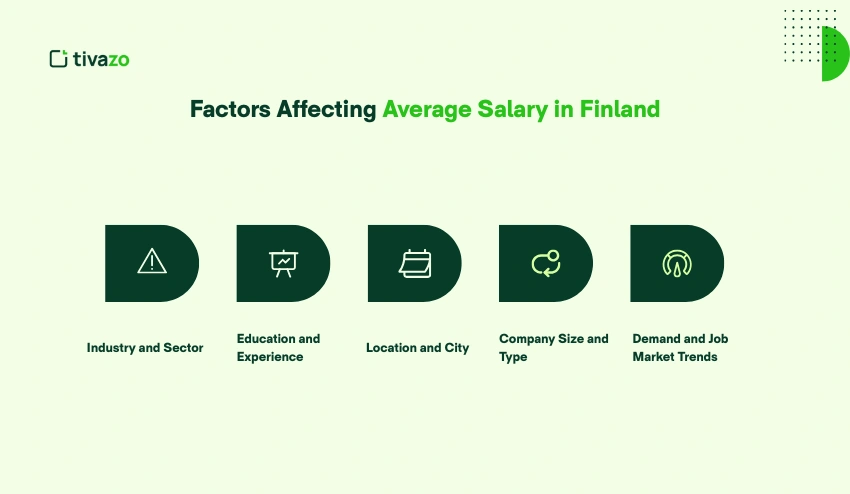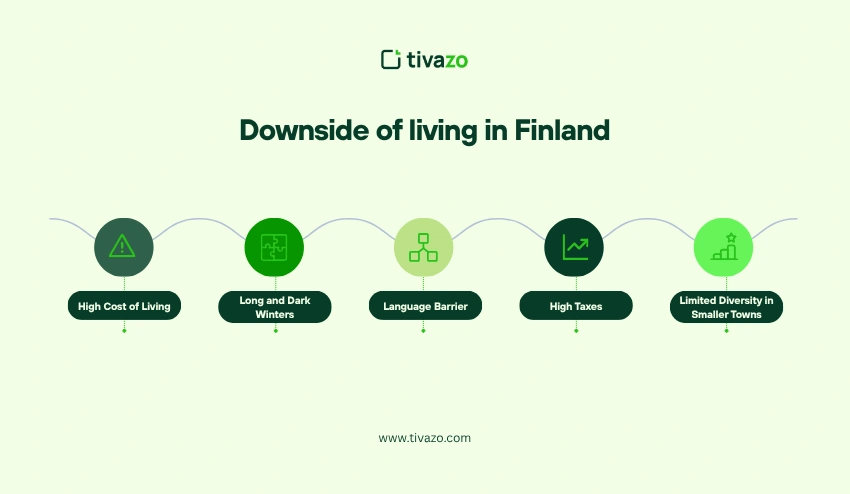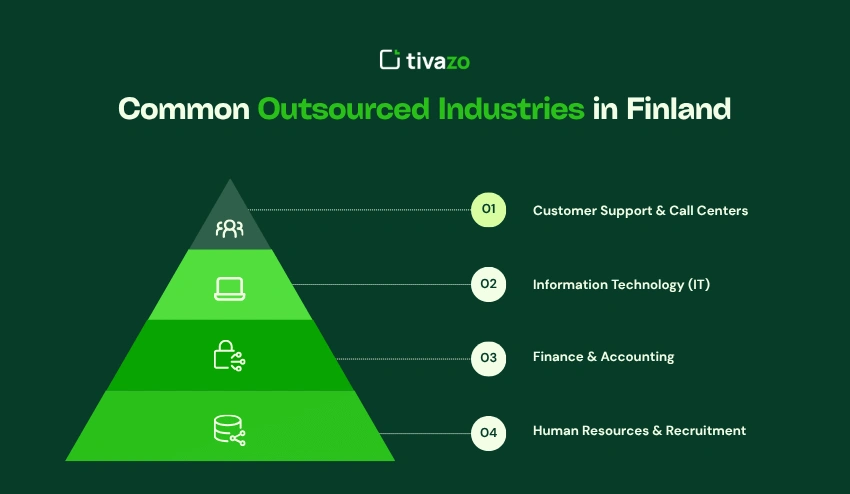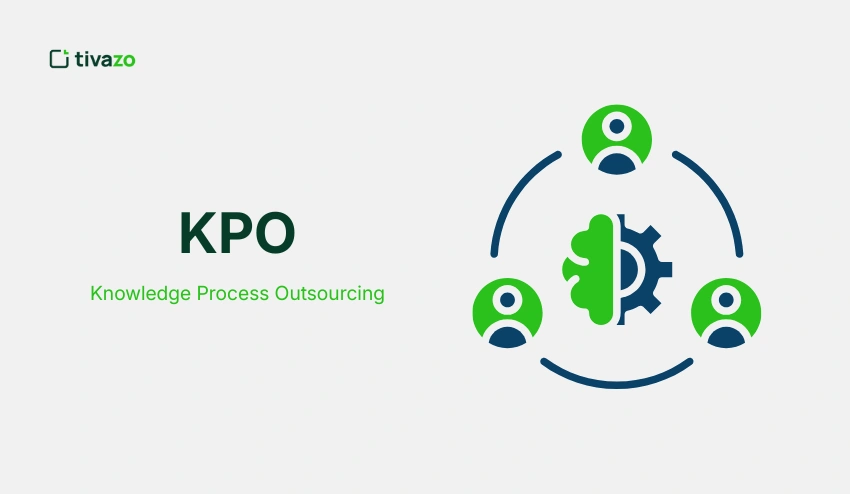Finland is known for its high standard of living, the best health care, and the best education in the world-but how much are people actually making? Knowledge of the average salary in Finland is essential when planning to work, relocate, or invest in Finland.
The average salary in Finland in 2026 may approximately be €4,000 per month, depending on the profession, experience, and location. Wages are high among IT specialists, as well as healthcare employees, which is a strong indicator of the economy and labor market in Finland. The average salary in Finland will help you organize your lifestyle, budget, and make a sound career choice.
As a local or a foreigner looking at Finland, the average salary in Finland can be used as a baseline for a comfortable living. In this blog, we will discuss the major factors that affect pay, remuneration in the industry, and how to deconstruct net income, as you know precisely what to expect in the dynamic workforce in Finland.
👉You May Also Like: What is the Average Salary in China in 2025?
What is the average salary in Finland?
The average salary in Finland is around €4,000 per month, roughly US $4,650, based on an exchange rate of about €1 = US $1.1626, though it varies by industry, experience, education, and location. Professionals in IT, engineering, and finance often earn above this average, while roles in retail or hospitality may earn less. Despite taxes, the average salary in Finland supports a high standard of living, complemented by excellent social benefits, healthcare, and work-life balance.
Factors Affecting Average Salary in Finland
The average salary in Finland varies depending on a number of factors, and some of the jobs are better paid than others. Exploration of these factors will assist the locals and foreigners to make sound career and lifestyle choices whilst taking into account the cost of living and work-life balance.

1. Industry and Sector
The average salary in Finland largely depends on the industry that you are in. IT, engineering, and finance are high-demand industries that usually pay high salaries far exceeding the national average, whereas hospitality, retail, and service jobs tend to be lower.
Salaries in the sectors may also be different according to the size of the company, international exposure, as well as profitability. Indicatively, multinational corporations in Helsinki tend to offer better wages and other benefits, which add to the net income after taxation.
Average Monthly Salaries by Industry in Finland:
| Industry / Sector | Average Monthly Salary (€) | Notes |
| Information Technology (IT) | 4,500–5,500 | High demand for software engineers and IT specialists |
| Engineering | 4,200–5,000 | Includes mechanical, civil, and electrical engineers |
| Finance & Banking | 4,000–5,200 | Includes accountants, financial analysts, and bankers |
| Healthcare | 3,500–4,500 | Nurses, doctors, and other medical professionals |
| Education & Teaching | 3,000–4,200 | Teachers and lecturers, varies by level and experience |
| Retail & Hospitality | 2,500–3,200 | Entry-level and service roles often pay below average |
2. Education and Experience
The average salary in Finland is directly influenced by education and professional experience. Those who have higher qualifications or specialized qualifications tend to earn a lot more, especially in technical and managerial fields.
On the same note, skilled workers are more likely to attract high salaries because Finnish employers are used to established skills and competencies. This movement stresses the significance of lifelong learning and professional growth in the competitive labor market of Finland.
Average Monthly Salaries by Education & Experience in Finland:
| Education / Experience Level | Average Monthly Salary (€) | Notes |
| High School Diploma | 2,500–3,200 | Entry-level positions, often in retail, hospitality, or service sectors |
| Bachelor’s Degree | 3,500–4,200 | Common for administrative, technical, and professional roles |
| Master’s Degree / Advanced Degree | 4,200–5,500 | Higher-level technical, managerial, and specialized roles |
| 0–3 Years Experience | 3,000–3,500 | Junior or entry-level positions across sectors |
| 4–7 Years Experience | 3,800–4,500 | Mid-level professionals, rising responsibility and pay |
| 8+ Years Experience | 4,500–6,000+ | Senior roles, leadership positions, and specialized expertise |
3. Location and City
The average salary in Finland varies depending on where you are employed in Finland because of the difference in regional economies and the cost of living. The salaries in large cities such as Helsinki and Espoo tend to be higher, which mirrors the higher living costs and high demand for skilled labor.
Conversely, the rural territories or smaller towns can be less paid but have a lower cost of living that can still make it a comfortable life. This local difference is one of the factors that a person should take into account when he/she decide to relocate or work in Finland.
👉You May Also Like: What Is the Average Salary in Romania?
Average Monthly Salaries by City in Finland:
| City / Region | Average Monthly Salary (€) | Notes |
| Helsinki | 4,500–5,200 | Capital region, higher living costs, strong demand for professionals |
| Espoo | 4,300–5,000 | Close to Helsinki, tech and corporate hubs, higher wages |
| Tampere | 3,800–4,500 | Industrial and IT sectors, moderate living costs |
| Turku | 3,700–4,400 | Port city with IT, manufacturing, and education sectors |
| Oulu | 3,500–4,200 | Northern city, tech-focused industries, lower living costs |
| Rural Areas | 2,800–3,500 | Lower wages, but cost of living is significantly cheaper |
4. Company Size and Type
The average salary in Finland is also affected by the size and type of the company. Big companies or multinational corporations tend to pay higher wages and have performance bonuses, among other benefits, than the smaller local firms.
Although public sector jobs are not always as well-paid, they have high job security, a pension, and work-life balance, which is why they are a good choice among different professionals in Finland.
5. Demand and Job Market Trends
The average salary in Finland is highly influenced by the demand for some skills and professions. The technology, healthcare, and engineering fields are in high demand, and the professionals in these fields are able to earn considerably higher than the national average.
The trends in the job market, such as outsourcing and new industries, also influence the salaries within the sectors. By keeping up with the positions that are in demand, both the locals and expatriates will be able to maximize their earnings as well as strategize their career development in Finland.
Average Monthly Salaries by High-Demand Jobs in Finland:
| Job / Sector | Average Monthly Salary (€) | Notes |
| Software Developers / IT | 4,500–5,500 | High demand in tech, especially in Helsinki and Espoo |
| Data Analysts / AI Specialists | 4,200–5,200 | Growing demand due to digital transformation |
| Engineers (Mechanical, Civil, Electrical) | 4,200–5,000 | Core industries, stable demand nationwide |
| Healthcare Professionals (Doctors, Nurses) | 3,500–4,500 | Continuous demand, regional variation possible |
| Teachers / STEM Educators | 3,200–4,200 | High demand for qualified educators, especially in STEM fields |
In general, the average salary in Finland is influenced by various factors, among them being industry, education, experience, location, and the type of company. The factors to consider can guide job seekers and expatriates to make wise choices when preparing to spend in Finland on the cost of living, taxes, and lifestyle.
What is the average income in Finland in US dollars?
The average income in Finland is approximately 4,000 euros per month, which translates to app. US 4,650/month. This is about US 55,800 annually; however, the specifics differ with occupation, experience, and location. Despite taxes, such an average income in Finland enables a high standard of living, good healthcare, and good social benefits, thus making Finland a good destination for both natives and expatriates.
What is the minimum wage in Finland?
Finland lacks a universal minimum wage, as is the case in most countries. Rather, collective labor agreements in every industry usually determine the wages paid to workers, which are reasonable. These agreements are useful in keeping a decent average wage in Finland and ensuring workers in the retail, hospitality, and manufacturing sectors, although they continue to provide a high standard of living and social benefits.
Which job is in high demand in Finland?
Finland is experiencing high demand in several professions currently, which is an indication of the increasing industries and economic demands in the country. IT, healthcare, engineering, and other jobs in the IT, health, engineering, and technology sector are usually well-compensated with higher salaries than the average salary in Finland, and thus they are appealing to both the locals and the expatriates. Employees with expertise in such fields can have good employment security, good pay, and career advancement.
High-Demand Jobs in Finland:
- Software developers and IT specialists
- Registered nurses and healthcare professionals
- Engineers (mechanical, civil, electrical)
- Data analysts and AI specialists
- Teachers and educators in STEM fields
- Construction and skilled trades professionals
What is the average salary in Finland per month for foreigners?
On average, foreigners in Finland earn an annual salary ranging between €2000 and €4,000 monthly (approximately US 4650), with an annual average of 4,000, but this may fluctuate depending on the industry, experience, and language proficiency. IT, engineering, and healthcare professionals tend to earn more than this average, though entry-level or service jobs can earn less. Most of the expatriates also enjoy good labor laws, social welfare, and work-life balance, so that the average wage in Finland among foreigners is enough to sustain a comfortable living.
Average salary in Finland for a Software Engineer
For a software engineer in Finland, the average salary is roughly €4,221 per month (around €50,660 per year).
- Junior-level positions earn approximately €3,000–€4,000 per month.
- Senior or specialist roles typically earn €5,500–€6,500 per month or more, especially for lead or architect positions.
Salaries vary depending on experience, skillset, location (e.g., Helsinki), and company size.
👉You May Also Like: Average Salary in Turkey in 2025: Income Insights by Profession, City & Role
What is the average salary in Finland per month after tax?
The monthly post-tax salaries average about €2,700-€2,900 or about $3,150-$3,400 US dollars, which varies depending on the level of income, municipality, and individual deductions. Finland uses progressive taxation, which means that the more income the person receives, the more taxes he/she is required to pay, and there are social benefits, such as health care, education, and retirement. The average post-tax salary in Finland is nevertheless rather high, which, together with affordable state services and a high work-life balance, provides a comfortable lifestyle even with deductions.
Is it cheaper to live in Finland than in the US?
Finland is not typically cheaper to live in than the US, with most of the daily costs, including housing, food, and services, being more expensive. Nevertheless, the average wage in Finland is relatively higher, and social benefits such as healthcare, education, and transport are good, which tends to offset expenditure. In as much as Finland might appear to be more costly in the short run, the quality of life, work-life balance, and social security are financially viable and comfortable to reside in.
What is the downside of living in Finland?
Although the average salary in Finland and social benefits contribute to it being a favorable place to live in, there are certain drawbacks to residing in the country. These challenges can be understood to enable both locals and expatriates to make the necessary lifestyle and financial changes in advance.

1. High Cost of Living
A rather high cost of living is one of the primary disadvantages of living in Finland. Housing, groceries, and day-to-day services are costly compared to most other nations, and this fact can impact the level of purchasing power of the average salary in Finland.
Having a competitive salary, however, it is worth considering budgeting, particularly in big cities such as Helsinki and Espoo. Some of the imported goods or eating out can be quite expensive for expats as compared to their countries of origin.
2. Long and Dark Winters
Finland has long, cold, and dark winters, which may have an impact on mood, energy levels, and daily routine. This seasonal problem can also affect the lifestyle choices even of a person with an average salary in Finland because outdoor activities and commuting can be worse.
People fight the winter blues through indoor activity, exercise, and community activities. Learning about and planning in advance how the seasons will fluctuate will help one to live in Finland without having to hate the long winters.
👉You May Also Like: Average Salary in Portugal 2025: What You Need to Know
3. Language Barrier
Although a lot of Finns know English, the Finnish language may be difficult to master. This can be a hindrance to career opportunities, social integration, and access to some services, even in a situation where the average salary in Finland is earned.
Foreigners usually have to take time to learn Finnish so that they can enjoy the benefits of promotions at work, networking, and Finnish culture. The level of language fluency may also affect access to some of the community services and access to the community.
4. High Taxes
Finland has a progressive tax system; hence, a large percentage of the income is paid in taxes. Even though the average salary in Finland is tailored to meet the living expenses and offer social benefits, taxation is high, and this may be a disadvantage to some citizens.
The taxes are used to finance broad-based government services, including healthcare, education, and pensions, which most people believe is a worthwhile trade-off. Nevertheless, when a newcomer has to adapt to the tax burden, it may not happen at first.
Although the average income in Finland is enough to lead a comfortable life, one should take into account such problems as expensive living, winters, a language barrier, and taxes. Knowing these negatives will allow the locals and the expatriates to plan well and get all the benefits that Finland can offer.
Average Salary Comparisons with Other European Countries
| Country | Average Monthly Salary | Notes on Cost of Living / Benefits |
| Finland | €4,000 (~$4,650) | High social benefits, strong work-life balance |
| Germany | €3,500 (~$4,060) | Moderate cost of living, strong economy |
| Sweden | €3,800 (~$4,420) | High taxes, excellent social services |
| Norway | €5,200 (~$6,050) | High salaries, higher cost of living |
| Denmark | €4,700 (~$5,460) | High taxes, strong social benefits |
| Netherlands | €4,100 (~$4,760) | Moderate living costs, good healthcare |
| France | €3,200 (~$3,720) | Moderate salaries, generous vacation policies |
| United Kingdom | €3,000 (~$3,480) | Lower salaries than in Finland, variable living costs |
Common Outsourced Industries in Finland
In Finland, outsourcing is becoming more popular, and companies are able to save on costs and obtain expert services. The knowledge of the average salary in Finland in various industries can assist professionals and expatriates in discovering good career prospects in the outsourced industries.

1. Information Technology (IT)
Software development, cloud services, and cybersecurity are listed among a number of the most frequently outsourced industries in Finland, including the IT sector. The wages in this industry frequently surpass the average pay in Finland, as there is a great need for competent specialists, and it takes into account the level of projects.
IT outsourcing enables Finnish companies to be competitive in the global arena and, at the same time, offer professionals a possibility of collaborating internationally. In the case of expatriates, employment in outsourced IT projects would provide them with exposure to new advanced technologies and increased earnings.
📖Read More: 13 Best Outsourcing Companies That Exist in 2025
2. Customer Support & Call Centers
Customer support services and call center services are often outsourced to enhance efficiency and cost-cutting. Although in the outsourced positions, the workers are able to receive salaries similar to the average wage in Finland, workers receive other benefits, like flexible work hours and multilingual experience.
These positions would be essential in ensuring the quality of service delivery to international customers. Growth opportunities are also available in the industry, such as team leadership and specialized support roles.
3. Finance & Accounting
A large number of Finnish firms outsource finance, bookkeeping, and accounting services to special firms. Such professionals tend to receive salaries that are on average or slightly above the average salary in Finland, particularly when they have such certifications as CPA or ACCA.
Outsourcing helps companies to achieve financial precision and compliance without fully outsourcing in-house groups. As a worker, it provides access to various firms and industries, which boosts professional experience and career growth.
4. Human Resources & Recruitment
Recruitment functions and human resources are being increasingly outsourced to professional agencies. The pay in this industry may be based on the average pay in Finland, together with other benefits such as training and flexible working hours.
HR outsourcing can assist Finnish firms in coping with employment, salary, and personnel development. In the case of professionals, it gives an opportunity to collaborate with various industries and acquire knowledge of the Finnish labor laws and practices of recruitment practices.
5. Marketing & Creative Services
In Finland, marketing, content development, and design are also widely outsourced. The salary of professionals in these positions can be approximately average in Finland, and higher salaries are proposed to the specialists of digital marketing, SEO, or graphic design.
Outsourcing provides firms with access to specialized talent at a low cost. To the employees, it provides imaginative liberty, diversity of projects, and interactions with local and foreign customers.
The outsourced industries in Finland offer various career opportunities to professionals, and their remuneration is usually close to the average salary in Finland or higher. Outsourcing career development, skills, and competitive income, whether in the IT, customer support, finance, HR, or marketing sectors.
Conclusion
The average salary in Finland provides a good level of living, which is backed by a good social welfare, good health, and well work-life balance. The wage depends on the industry, experience, geographical location, and type of business, with the most sought-after sectors such as IT, engineering, healthcare, and outsourced services likely to attract salaries that are higher than the national average.
In the future, in 2026, the average salary in Finland is projected to increase slightly, and this is due to the current economic stability, technological progress, and the need for skilled professionals. To the locals as well as the expatriates, this translates to improved career prospects, good salaries, and enjoying the high standards of life in Finland. Knowing such trends enables job seekers to plan well and make proper decisions regarding living and working in Finland.




